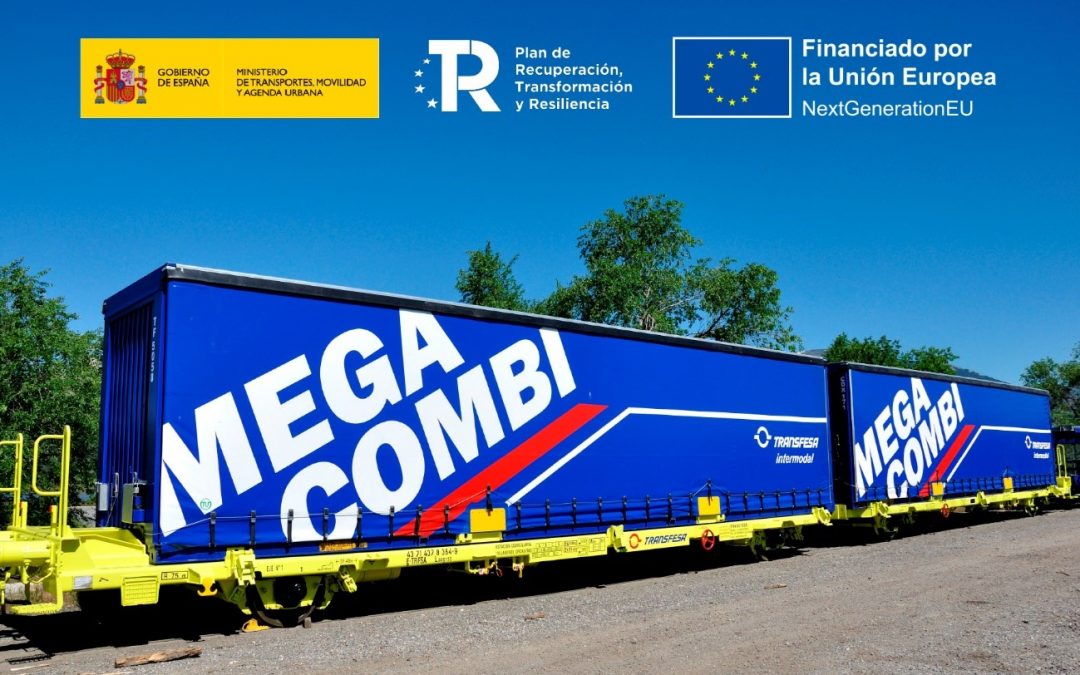- This project aims to adapt the company’s 606 wagons that operate national and peninsular routes with noise reduction systems on the company’s RFIG (general interest rail network track).
- The initiative is in line with the environmental commitment acquired by the Transfesa Logistics Group and is part of the government’s Next Generation Recovery, Transformation and Resilience Plan, financed by the European Union.
Transfesa Logistics has a total fleet of 2,662 wagons, of which the international wagons are already fitted with low-noise brake blocks. Through this project, in 2024, noise reduction systems will be installed on the remaining 606 wagons, destined for peninsular traffic. In this way, the company will be able to meet the objective of having the entire fleet adapted, thus achieving a major milestone on an environmental level, as it will significantly reduce the noise pollution emitted by its traffic and wagons.
This project, financed by the European Union – NextGenerationEU, will subsidise the installation of 163,152.64 euros.
The aid is in line with the support to sustainable transport, which aims to increase the presence of the railway as the most environmentally friendly means of freight transport and, in addition to complying with the Transfesa Logistics Group’s integral policy, it is fully in line with its environmental commitment.
According to the report “Noise in Europe-2020” by the European Environment Agency, rail traffic is the second source (after road traffic) that emits the most environmental noise in Europe, with a noise impact that affects between 3 % and 4 % of the population.
Despite the fact that the noise caused by trains is still less than that generated by roads, specifically 3 times less, according to the Rail Freight Forward White Paper, Transfesa Logistics is working to minimise noise pollution levels by reducing the noise impact of brakes, one of the noisiest elements of the railway.
Furthermore, it is aligned with Commission Regulation (EU) 1304/2014 of 26 November 2014 on the technical specification for interoperability applicable to the rolling stock-noise subsystem, which establishes that from 8 December 2024 wagons that do not have these systems will not be able to be operated on so-called silent routes.

